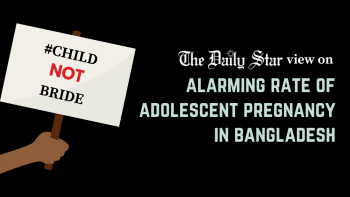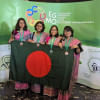Maternal mortality is still a red flag

There is no doubt that maternal mortality has reduced considerably over the years, but 531 deaths out of 98,000 pregnancy-related surgeries in just 14 hospitals in a year is still too high a number. As per a report by this daily, high-risk pregnancies are increasing in the country, while another report by Prothom Alo noted the high number of home births. How can these realities be acceptable in a country that is on track to become a middle-income one soon?
Early pregnancy—a product of child marriage—is one of the main causes of high-risk pregnancies. While we have failed to check the spread of this social evil, we are also not doing a good job of raising awareness about prenatal care and the risks involved in home deliveries. Lack of access to proper medical interventions is another factor that is putting many pregnant women, especially in rural areas, at risk. There is also a shortage of doctors specialised in feto-maternal medicine, which focuses on high-risk pregnancies, with more than 3,000 health facilities in rural Bangladesh said to have not even an obstetrician and anaesthesiologist.
On the Safe Motherhood Day yesterday, the government sent out mobile phone messages asking women to have their deliveries at hospitals and thus save infants' lives. If there are no trained physicians at the union health complexes or other care facilities, why would pregnant women even come to these centres? This type of mobile messaging will be fruitless if the shortage of skilled professionals is not resolved. Besides, just a slogan sent over a text message is not enough to make women and families aware of the risk of early pregnancies and the need for prenatal and postnatal care.
We also must get to the root of early pregnancy—child marriage—and nip it in the bud. As long as this practice continues, we cannot save our girls from the cycle of ill health including pregnancy-related complications. We must remember that the life of every pregnant woman counts, and do whatever necessary to ensure it.


 For all latest news, follow The Daily Star's Google News channel.
For all latest news, follow The Daily Star's Google News channel. 










Comments